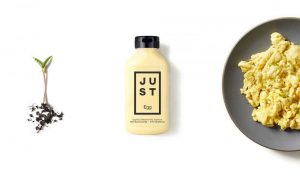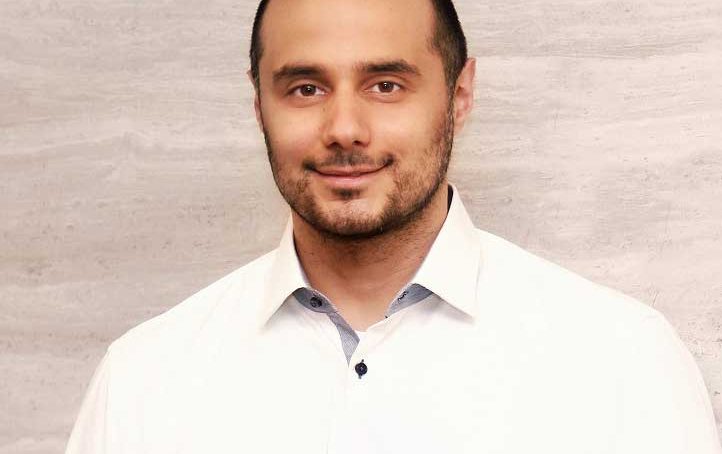
HRH Prince Khaled bin Alwaleed bin Talal Al Saud, founder and CEO, KBW Ventures
A Prince, a tech-enthusiast, shrewd businessman, venture capitalist and vegan, HRH Prince Khaled bin Alwaleed bin Talal Al Saud, founder and Chief Executive Officer of KBW Ventures and son of famed Saudi Prince Alwaleed bin Talal Al Saud is not your typical Middle East entrepreneur. Through his investments, Prince Khaled is involved in big names making waves in the hospitality industry, like Beyond Meat and Geltor that promises to make animal-free gelatin, and he sits on the Board of JUST, makers of the bestselling plant-based JUST Egg. He is the voice of the millennial mindset and whoever isn’t listening is already behind. Meet Prince Khaled.
What do you see as the biggest sustainability issue right now and why?
“That’s a tough call as they are all pressing. Water and food security, preventing any further damage to the earth, dissuading people from so much wastage and re-learning, repurposing and upcycling… the list is really endless.
I think that there has been a lot of strong media information about how much we need to do to try and alleviate the damage we’re doing on a day to day basis, and prevent further destruction of the planet; small steps by every person help. From a corporate perspective, companies are now realizing the benefits of thinking greener – huge conglomerates doing things like reducing or altogether removing single use plastics will make a big difference. We all have a role to play, and if it is as simple as using refillable water bottles it still goes a long way. This is one small measure that we put in place at our Dubai offices; all of our team members were issued glass bottles and mugs with their names.”
As the first venture capitalist in the MENA region to support and back a plant-based business model, are there conflicts between your ethics and the financial bottom line for KBW Ventures?
“Great question, but for sure the answer is no. No business that I am involved in works against my moral compass in any way. In fact, much of the KBW Ventures’ portfolio contains a social good element, which is even better. The fact is, plant-based business models are finally getting the attention they deserve; these companies stand to make real money.
I want to be clear that I don’t get into an investment only for the social good element – it’s fantastic to have that built into the business model but it isn’t a must-have. What it must have is the potential to turn a profit and scale; that said, I wouldn’t back a company that goes against my personal values, it doesn’t matter how lucrative it can be.”
The business case for sustainability draws on several core arguments. Which argument would appeal to the hospitality industry to sway them to your side?
“Well if you want to look at it cut and dried from a purely business perspective and the benefits then there are several reasons. Companies are trying to bring millennials over to their side – this is one of the easiest way to get their attention. It is also one of the easiest ways to get them to advocate for your brand or business over a competitor – I do it personally. I always advocate for the sustainable brand and it would be in the context of being a customer.
Second, socially-conscious companies are more favorably looked upon by a huge percentage of companies looking to align themselves with likeminded brands. This can honestly mean the difference between say, your hotel and other hotels. So when a huge company is looking to ally itself with a F&B catering company, they may just choose your brand simply because you are eco-conscious when others with similar offerings are not. You really need to think bigger picture and long-term; sure, it may be a pain to switch to recycled materials now but it will pay off later.”

Startup Evenings in Bahrain hosts Prince Khaled bin Alwaleed bin Talal
Can you discuss the recent surge in interest in food tech and food science?
“I think I touched on this earlier but basically Beyond Meat’s IPO has a lot to do with it. People who never considered a plant-based business model as a potential investment are now finally seeing it as a business with solid potential. I think they were probably a bit self-blinded before as the Beyond Burger is sold everywhere and the company continues to sign huge deals with businesses that are considered household names. It is hard to ignore, honestly.
KBW Ventures got in pre-IPO, which is great, but I want to state that it’s more important that investors who were previously focused on traditional businesses are now looking into where and how they can back companies that are creating the protein of the future. Get your money in now, and you’ll be glad you did later. Cellular agriculture is advancing daily; we’re really on the cusp of making this an affordable reality, in addition to the fact that this clean meat really is clean. No hormones, no antibiotics, and it is cruelty-free. The meat industry wants it positioned as ‘frankenfood’, I say they don’t want you to make money as an investor and they don’t want you to wake up to how much better it is than factory-farmed meat as a consumer.”
Which one of your F&B products and concepts will be readily available in the Middle East by 2020?
“A few of them are here already. Our conceptual menu, Folia, is already offered in Bahrain at the Four Seasons, and we are about to announce a new city in this region with two venues. Companies that we invest in already have a foothold here, like Beyond Meat, and we’re confident that will only grow in customer-base.”

Folia at the Four Seasons Bahrain Bay
What are the challenges you are facing when integrating plant-based products in the Middle East?
“I’d say the challenges are basically awareness-oriented. Marketing and PR solve a lot of the launch equation. People are willing and ready to try new things, but they need to be aware of the options and they need to have access to that option.
I think there is also an idea that you should market plant-based products to people who already observe that nutritional ideal; it is really off-mark as it should be showcased to anyone looking to eat healthier and still enjoy their burgers or chicken fingers or whatever their preference.
Another challenge is making sure that the product is widely available and has visible positioning on retailer shelves. If you can’t be found, you can’t be bought, basically.”
For the plant-curious, what’s another product that people should try out?
“JUST. They have a fantastic lineup of products that anyone will enjoy. You need to try an omelet made with JUST Egg. It’s the best-known product in their lineup next to JUST Mayo and their dressings. If you visit their website www.ju.st you’ll see recipes that are worth trying. They’ve teamed up with so many different chefs to have them test out the quality and texture of the JUST Egg, and they all come back with rave reviews.
I’m a Board Member of JUST, and I do it because this is a company that knows where the future of food is going; they are prescient enough that they see nutrition trends and they are capitalizing on it before everyone else does.”



















